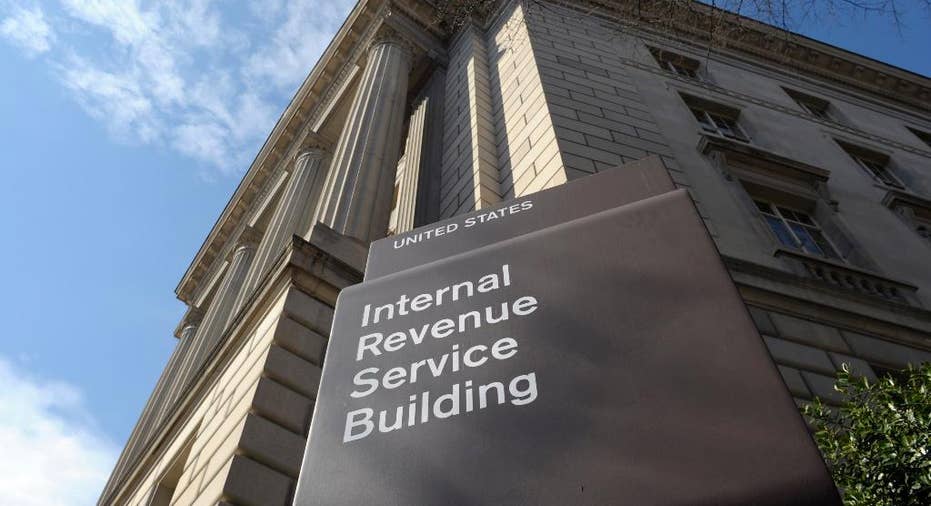How to survive an IRS audit

FILE - This March 22, 2013, file photo, shows the exterior of the Internal Revenue Service building in Washington.
(AP Photo/Susan Walsh, File)
The Internal Revenue Service is auditing fewer taxpayers than it used to, but that doesn’t mean it’s out of the question for you.
The number of taxpayers the IRS audited declined https://www.wsj.com/articles/the-irs-is-auditing-a-lot-fewer-americans-1522315800 for the sixth consecutive year in 2017, the Wall Street Journal reported, reaching the lowest level since 2002. About one in 160 individual returns were audited in 2017, down from one in 90 in 2010, the peak year for audits during the previous decade. But of course, they still happen, so here are some tips on how to get through one.
Audits happen for various reasons: the IRS has a computer program that randomly selects taxpayers for an audit, or an IRS agent may investigate someone’s return if they’re associated with another taxpayer who’s being audited. Certain red flags can also trigger an audit, including a taxpayer claiming that they donated a disproportionate amount of their income to charity (for example, someone earning $120,000 and claiming $50,000 went to charitable contributions), or a taxpayer suddenly claiming an avalanche of business expenses for unreimbursed employee expense deductions.
The IRS will notify a taxpayer by mail if she’s being audited. (It’s important to note that the IRS does not reach out to taxpayers via email or phone; if that happens, you are probably being scammed.) The taxpayer will be asked to provide specific documents, some of which can be electronically produced by tax software. If a taxpayer has many records to show, she can request a face-to-face interview. Contact information will be included in the original letter.
Audits can lead to fines. If the IRS believes the taxpayer filed an "erroneous claim for a refund or credit,” the agency will charge the taxpayer 20% of the amount the taxpayer failed to pay, according to the IRS. If the IRS deems the tax return “frivolous,” and the taxpayer doesn’t provide enough documentation to prove otherwise, they will be fined $5,000. The most serious audits can lead to criminal charges. Audits help the IRS collect more taxpayer money: in 2015, audits led to an additional $12 billion in recommended additional tax payments, according to the Tax Foundation. Higher-income households are more likely to be audited, the Foundation found.
So what to do if you get a letter saying you’re being audited? First, respond to the letter as soon as possible. If the audit was triggered by a minor error on your part or on the part of your tax preparer, or your employer’s part (for example if they provided wrong information on a W2 form), send the appropriate documentation correcting the return.
If it’s a matter of the IRS agent and taxpayer disagreeing on the interpretation of tax law, build a case, said Mark Kohler, certified public accountant and senior tax adviser for e-filing software TaxSlayer. “You want as much documentation telling the IRS the facts,” he said. “You have to substantiate your point of view.”
But don’t flood IRS agents with too much irrelevant information, and choose only documentation that is pertinent to the issue of contention, he said. This includes receipts, order forms and all other supporting documentation. “They’ll see if you’re trying to distract them with busy work, but if you can provide correct information, give them everything you can find,” he said.
One more piece of advice? Don’t panic, said Lisa Greene Lewis, a certified public accountant and tax expert at TurboTax. INTU, -2.42% Approximately 80% of audits are correspondence audits, which means the IRS is just asking for documentation, making an adjustment to the return or fixing a math error. If it requires sending proof as to why what you filed is correct, and leads to an in-person meeting, remain calm. “Don’t go into a panic and ignore notices,” she said. “The IRS will help you.”
Also see: How to file your taxes for free online if you make less than $66,000 a year
What else to know:
• The IRS can audit returns filed in the last three years, though if there was a serious error prior to that, they may audit returns from earlier years. Usually, the agency tries to audit returns as soon as possible, it said.
• There is no set length for how long an audit takes — it depends on the complexity of the issues, how much information is needed, and potentially scheduling in-person meetings.
• Taxpayers have their own bill of rights, including the right to know why the IRS is asking for information and the right to representation (by oneself or an authorized representative).
• Audits end in three ways: with no change (this usually happens if a taxpayer substantiates all of the questionable items); the taxpayer agrees with the IRS’s proposed changes; or the taxpayer disagrees with the IRS’s proposed changes and requests a meeting with an IRS manager or files an appeal.
Reporter: Alessandra Malito, Marketwatch



















